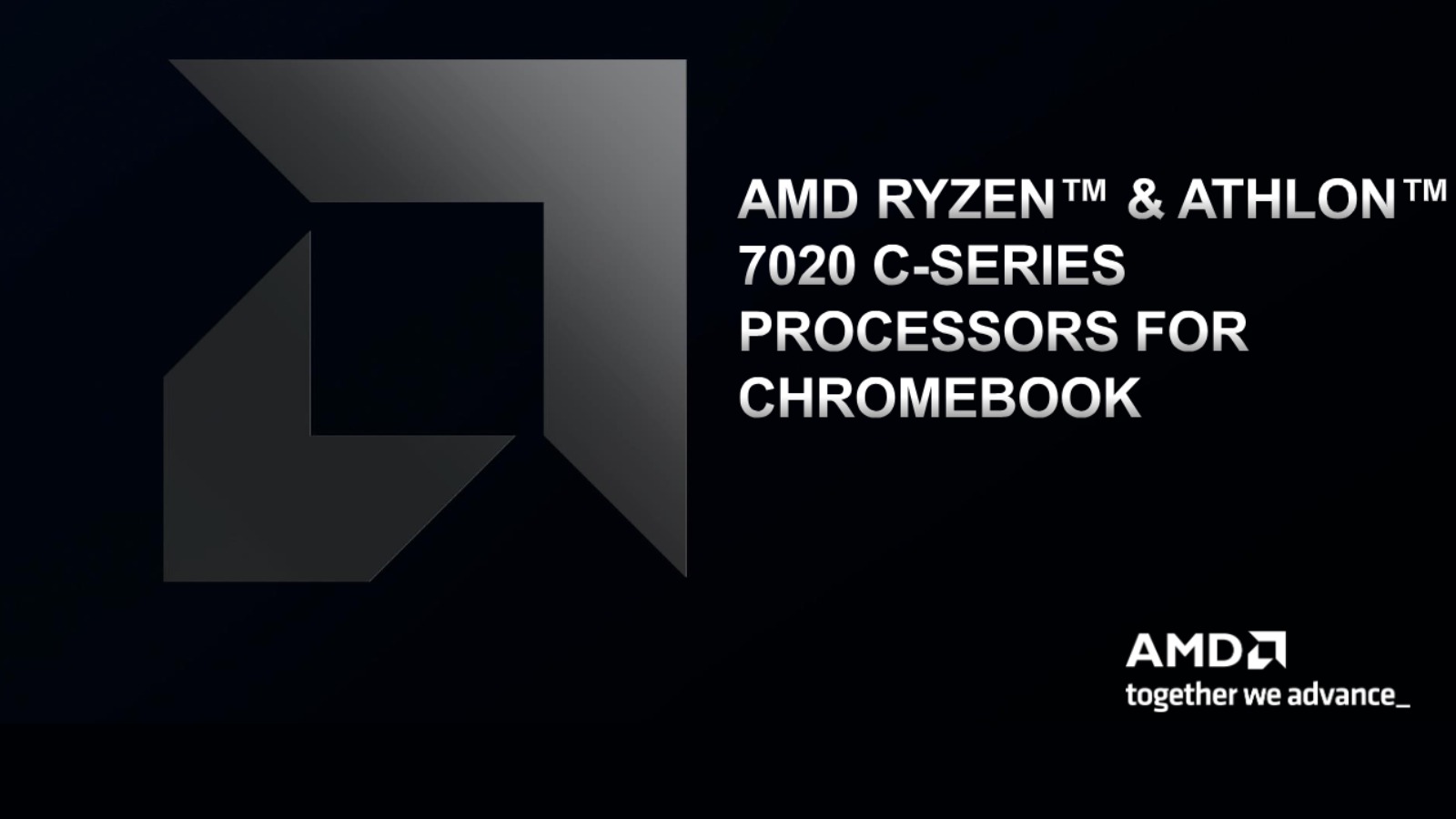Earlier this month, a new Chromebook appeared on Dell’s website that is carrying an unannounced new processor from AMD. I presume that the new Ryzen 5 7520 would be a direct competitor for Intel’s 12th Gen processors found in many of the current flagship devices on the market. I was partially correct. Today, AMD has taken the wraps off of its new C-series lineup and the chipmaker is making some bold claims about this new chipset that’s aimed squarely at the mid-range Chromebook segment that falls in the $300 to $700 price range.
Going by the nomenclature 7020 C-series, the new AMD processors feature up to four high-performance Zen 2 cores. Unlike Intel which has focused on adding more power-efficient cores to its CPUs, AMD says that the “advanced” 6nm chip technology enables high-end performance while producing dramatically increased battery life. The new family consists of two dual-core Athlon processors and two quad-core Ryzen chips. All four feature AMD’s Radeon 610M graphics.

While I fully expected AMD to use Intel’s larger Core CPUs from comparison, the new 7020 C-series is instead competing against MediaTek’s flagship 1380 Kompanio and Intel’s new N-series Core i3 from the Alder Lake family. You would think that this means that these are mid-range in the power department but AMD is targeting these competitor’s chipset because the 7020 is boasting up to a mind-blowing 17.1 hours of battery life; a feat never achieved by an x86-based Chromebook.
The new processors support LPDDR5 memory and can support up to three 4K displays at 60Hz. AMD pitted the Ryzen 3 7320C against Intel’s latest Core i3-N305 and reported a 15% performance advantage over the Alder Lake CPU. Benchmarking against the MediaTek Komapanio 1380, AMD is touting 28% better battery life. This would be a massive achievement for AMD is their x86 chip can beat out an ARM-based processor in this department. We’ll have to get our hands on a device for testing to see if the claims hold water. Unfortunately for previous AMD devices, the battery life relied heavily on the fact that the processors were throttled when they were off charge. Hopefully, that won’t be the case for this new generation. Either way, I would expect any laptop to get 17 hours under my normal workload. Still, if it gets 12, I will be thoroughly impressed.
According to a 2023 report from IDC, the compound annual growth rate for $300-$500 Chromebooks between 2017 and 2022 was 20% with $500-$700 ChromeOS devices coming in right behind at 18%. This is one of the driving forces behind AMD’s new processors that will target that mid-to-upper range with a balance of performance and battery life. The same report estimates that compound annual growth rate is forecasted at 10% over the next four years for ChromeOS which has led AMD to double-down and go all-in on developing for the ChromeOS platform more aggressively than ever before.
We obviously already know about the Dell Latitude 3445 Chromebook but AMD also shared that a new ASUS Chromebook Flip CM34 would arrive before the end of Q2 and it looks very much like the ASUS Vibe CX34 gaming Chromebook released earlier this year.

I will say this. If these devices come in around $700, offer all the features you see above and get anywhere near the performance and battery life that AMD is advertising, it’s a huge deal. This could mark the first time that AMD could actually make a dent in the flagship consumer space. Acer is also expected to release a new AMD devices and we’ll be looking to get our hands on some of these ASAP to see if AMD can finally make a name for itself in the ChromeOS space. Read the full announcement here.



